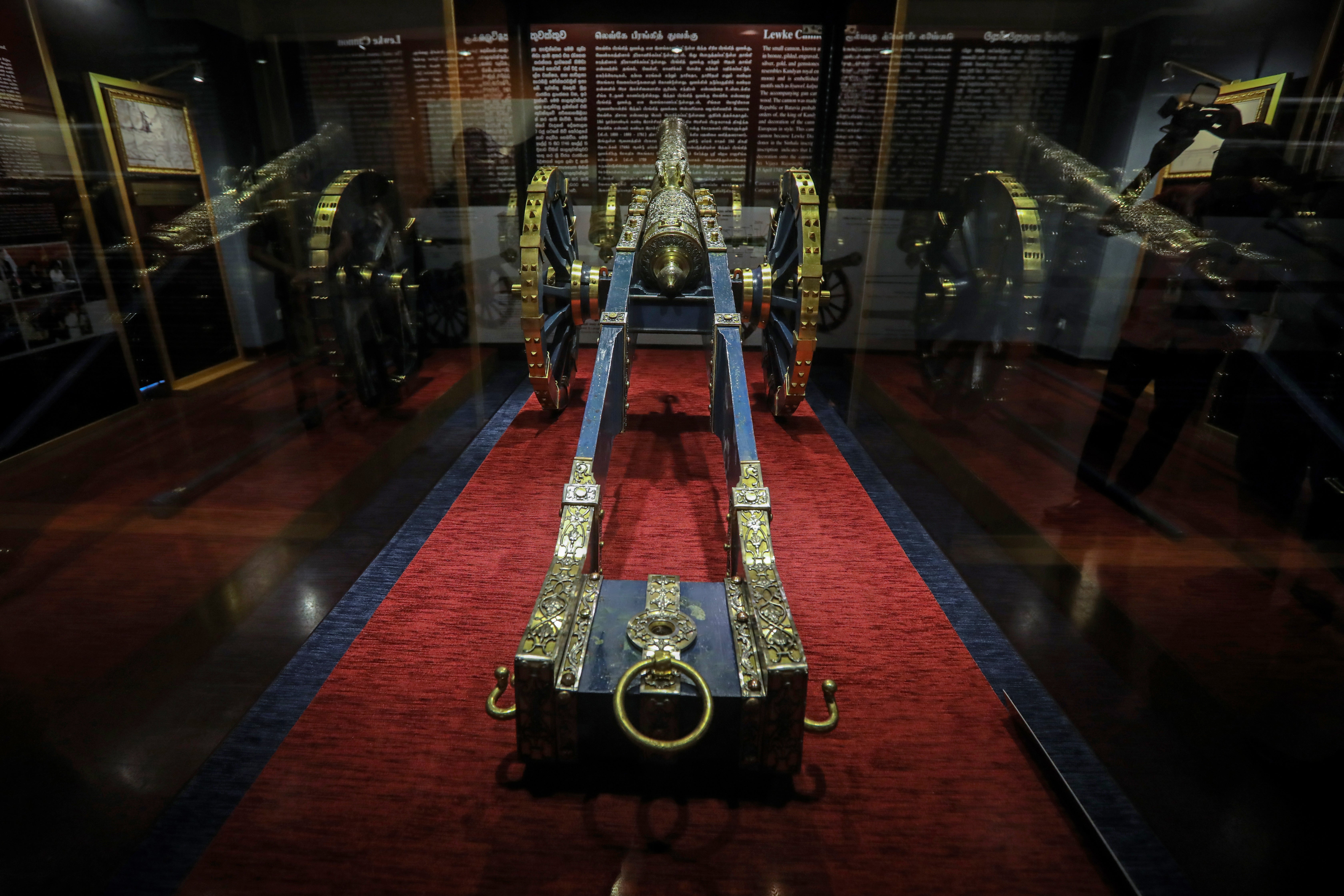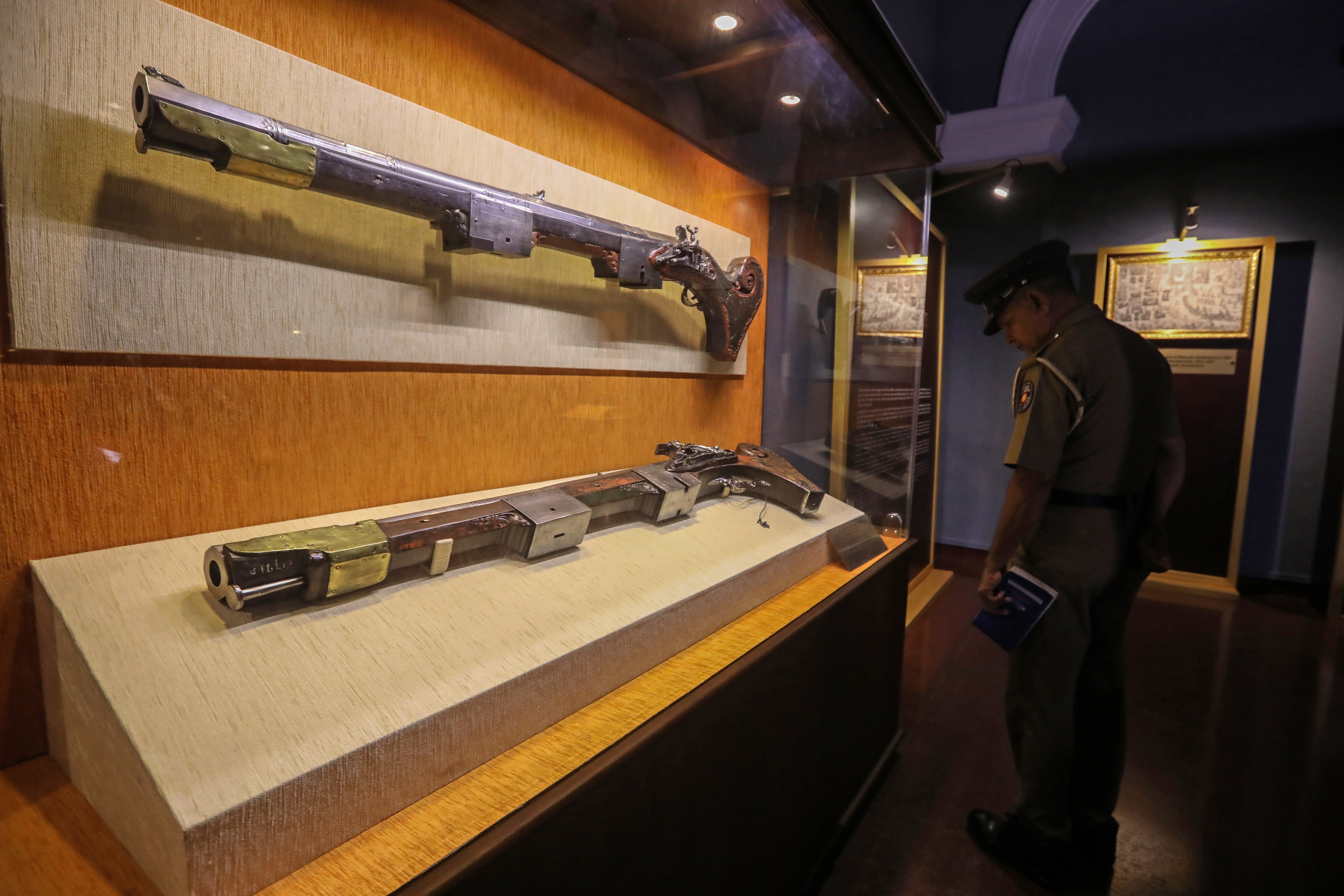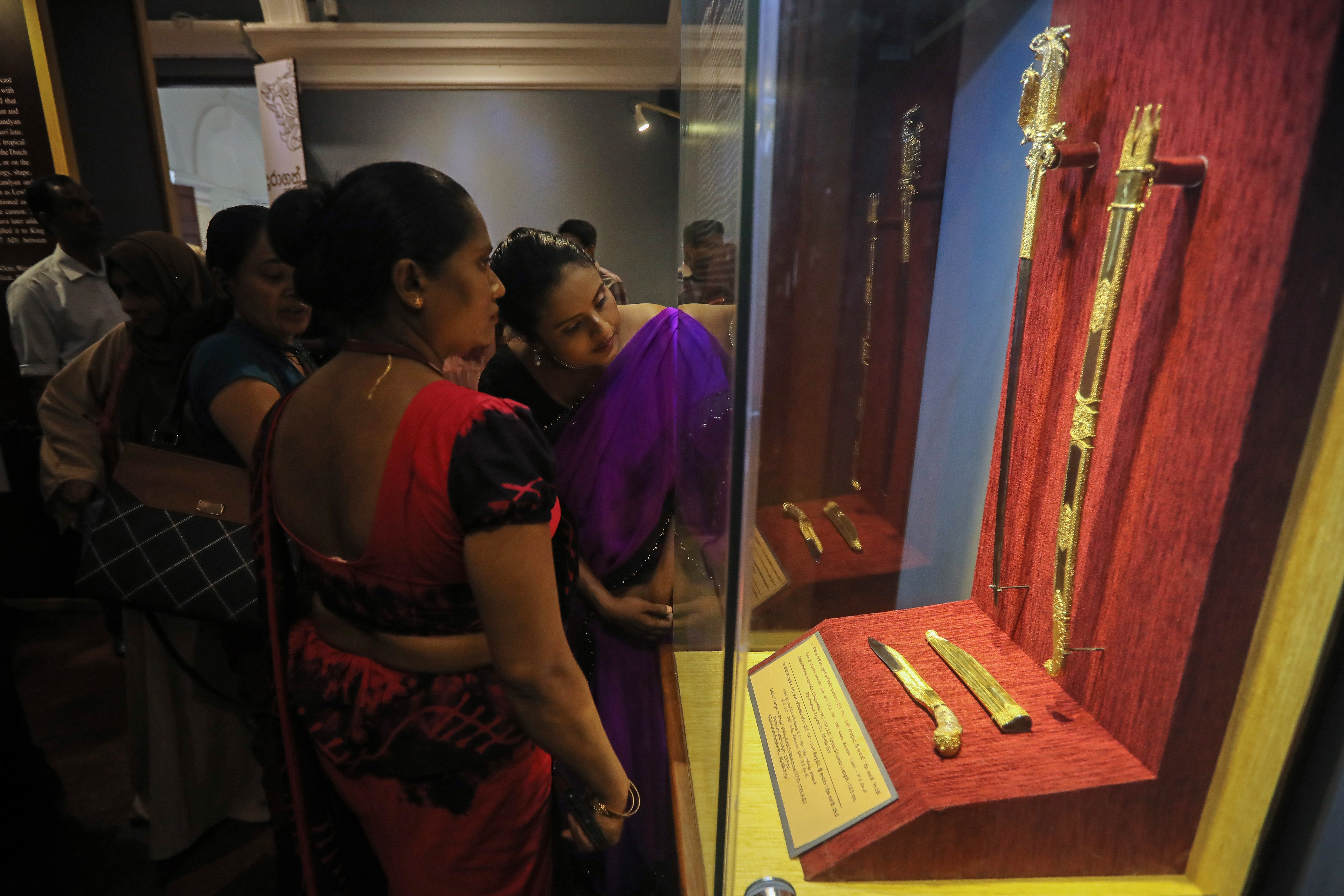Pressure grows on UK over British Museum treasures as Netherlands returns major colonial artefacts
Sri Lanka says return of looted artefacts is redressing ‘historical injustice’
Your support helps us to tell the story
From reproductive rights to climate change to Big Tech, The Independent is on the ground when the story is developing. Whether it's investigating the financials of Elon Musk's pro-Trump PAC or producing our latest documentary, 'The A Word', which shines a light on the American women fighting for reproductive rights, we know how important it is to parse out the facts from the messaging.
At such a critical moment in US history, we need reporters on the ground. Your donation allows us to keep sending journalists to speak to both sides of the story.
The Independent is trusted by Americans across the entire political spectrum. And unlike many other quality news outlets, we choose not to lock Americans out of our reporting and analysis with paywalls. We believe quality journalism should be available to everyone, paid for by those who can afford it.
Your support makes all the difference.Pressure is mounting on the UK to return the contested treasures held in the British Museum after the Netherlands gave back six valuable artefacts taken from Sri Lanka during the colonial period.
The Netherlands, which colonised Sri Lanka in the early 17th century, returned the artefacts looted 250 years ago from the Kandy kingdom – the last independent monarchy of Sri Lanka.
Sri Lanka has suggested that “there is more to come” from other countries, including Britain.
The colonial-era treasures, including a cannon inlaid with gold, silver, and bronze known as the "Lewke’s cannon”, a ceremonial sword, and two guns have been now displayed in the Colombo National Museum of Sri Lanka, a statement from the Netherlands embassy said.
The objects were “wrongfully brought to the Netherlands during the colonial period, acquired under duress or by looting”.
"Now, after more than 200 years abroad, six Sri Lankan artefacts will be physically returned to Sri Lanka during a two-day event at the Colombo National Museum on December 5 and 6,” the Dutch embassy said.
Sri Lanka expressed gratitude to the government and citizens of the Netherlands for the return of the artefacts, said Buddhasasana religious and cultural affairs minister Vidura Wickramanayake.

Mr Wickramanayake said they have started negotiations with other countries as well like Greece and Britain to bring back the looted treasures.
"There are more to come. Not only from the Netherlands but also from other countries like Great Britain. So we have already started negotiations and I hope they will be fruitful very soon," Mr Wickramanayake said.
The repatriation of the artefacts comes two years after the Netherlands agreed to return the artefacts on request of the Sri Lankan government.
"These objects represent an important cultural and historical value and they are back in Sri Lanka where they can be seen by the Sri Lankan public," said Dewi Van de Weerd, ambassador for international cultural cooperation.

"The value of returning these objects is important because it is about addressing historical injustices."
Britain is also home to some of the rarest looted artefacts from Sri Lanka, including a gold-plated statue of the goddess Tara that is currently in the British Museum in London.
In recent decades, the British Museum has frequently encountered criticism over its right to hold ancient treasures, with some asserting that numerous relics in its collection were essentially "looted" during the colonial heyday of the British Empire.

The issue has sparked a diplomatic row between Britain and Greece over the ownership of the Parthenon Sculptures, known as the Elgin marbles.
It escalated last month after both sides blamed each other when prime minister Rishi Sunak unexpectedly cancelled a meeting with Kyriakos Mitsotakis after the Greek counterpart said he planned to raise the question of their return.
Some of the other high profile contested items include the Benin Bronzes of present-day Nigeria, a collection of at least 23,000 Chinese relics, Rosetta Stone sought by Egypt and two moai originating from Rapa Nui.

Join our commenting forum
Join thought-provoking conversations, follow other Independent readers and see their replies
Comments